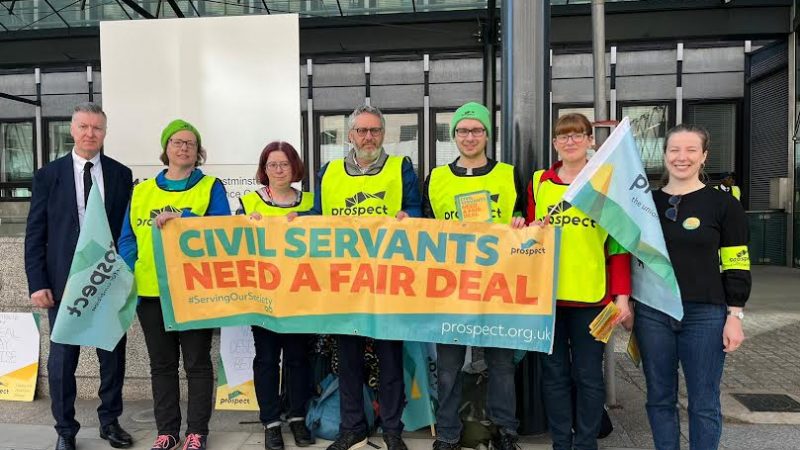'Why are they treating their own staff worse than anyone else?'

The government has been accused of ‘punishing’ their own staff and ‘making an example’ of civil servants by the leader of the union for civil service workers.
In an ongoing dispute over pay, job losses and redundancy terms, civil servants with the union Prospect are on strike today for a second time in what is the largest industrial action the union has taken in over a decade.
Their members’ pay has declined by up to 26% in real terms since 2010, with civil servants on some of the worst pay settlements in the public sector, having been dealt a recent 4.5% pay offer by the government.
The union have called for a ‘serious pay offer’ that recognises the cost-of-living crisis that their members are facing.
Speaking on the BBC radio 4 today programme this morning, Mike Clancy, general secretary of Prospect, questioned why civil servants were being treated differently in the public sector and accused the government of making an example of their own staff.
“Our members have faced the worst pay conditions of any public-sector group,” said Clancy.
“If the government had followed the same template that they have for the rest of the public sector then we wouldn’t be taking strike action today.
“Every indication was that they were contemplating the same format and then abruptly they published their pay control. We are asking government why they did that, and why they’re treating their own staff worse than anyone else.”
It follows civil servants not being offered the one-off lump sum cost of living payments that other workers in the public sector were promised, such as teachers, health staff and rail workers.
Clancy emphasised that the dispute could be ended if the government chose to offer his members the same as in the rest of the public sector.
“This is entirely solvable, it’s up to government now to come back to us and do the same for their own staff as they have across the rest of the public service.
“That’s why public ministers and the leadership of the civil service need to ask themselves, why treat their own staff worse than anybody else?”
Although stating that there was ‘no logic’ to the government’s current position in the pay dispute, he speculated that ministers had ‘set their own precedent’ over public service pay after becoming concerned in Easter over headline pay control in the sector, and therefore changed their stance on pay for civil servants.
He added: “What’s inexplicable is why they decided to punish their civil servants and make an example of them it seems by making their pay and conditions worse than anybody else.”
According to Prospect, the government has refused to enter negotiations to resolve the current dispute.
Taking striking action today are staff from a wide range of sectors in the civil service, including Biological Researchers at Kew Gardens and those in the Health and Safety Executive, Trinity House, Intellectual Property Office, Animal and Plant Health Agency, Natural England and UK Research and Innovation.
With a strike mandate until August, more industrial action is set for Prospect members starting on June 7, as well as continued action short of a strike.
Hannah Davenport is trade union reporter at Left Foot Forward
(Photo credit: Prospect)
Left Foot Forward’s trade union reporting is supported by the Barry Amiel and Norman Melburn Trust

To reach hundreds of thousands of new readers we need to grow our donor base substantially.
That's why in 2024, we are seeking to generate 150 additional regular donors to support Left Foot Forward's work.
We still need another 117 people to donate to hit the target. You can help. Donate today.



